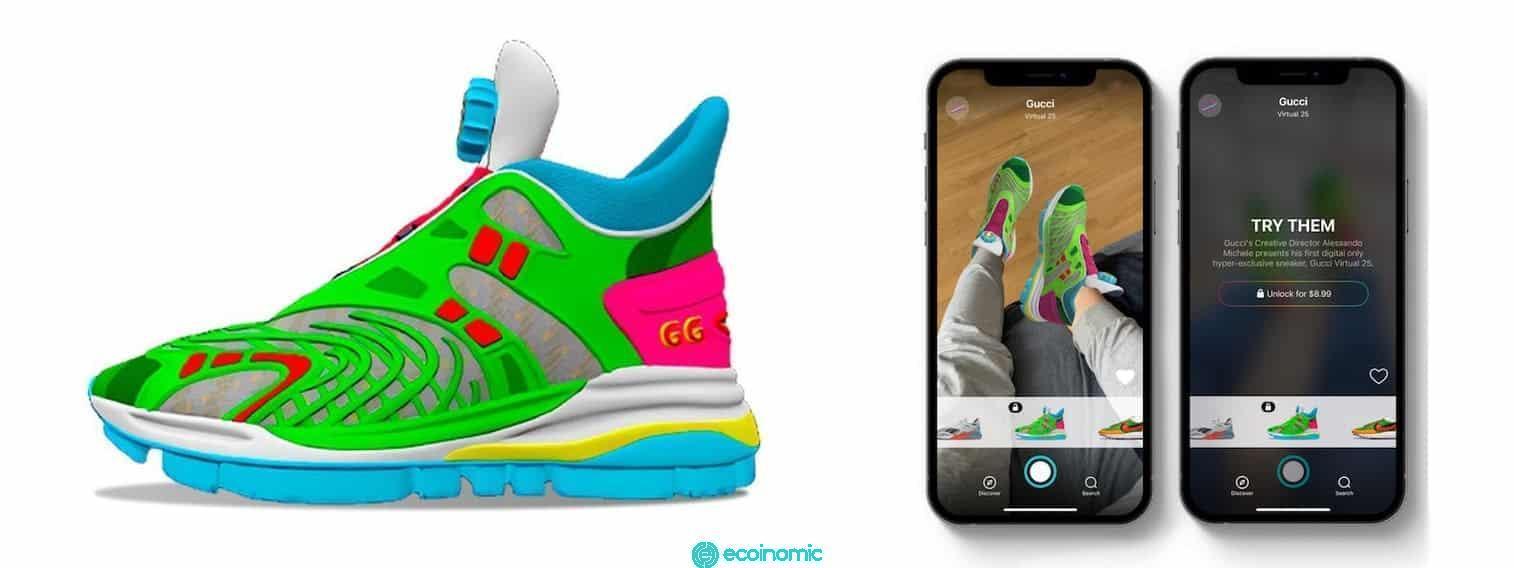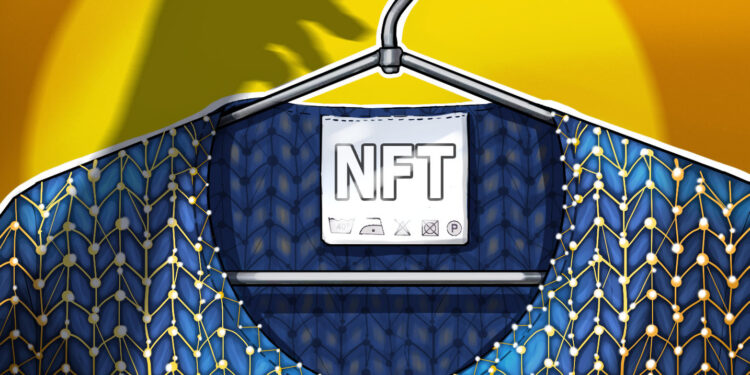Advertisement
Gucci is tapping into the cryptocurrency community. The brand will accept cryptocurrency payments at several stores in the U.S. later this month and plans to expand the pilot to all North American stores operating directly this summer. The move marks a huge confirmation for cryptocurrencies coming from a leading luxury brand.
Gucci's 5-store system accepts cryptocurrency payments
The first Gucci stores to use cryptocurrencies were Wooster Street in New York, Rodeo Drive in Los Angeles, Miami Design District, Phipps Plaza in Atlanta, and The Shops at Crystals in Las Vegas. Gucci will accept payments in more than 10 currencies, including Bitcoin (BTC), Bitcoin Cash (BCH), Ethereum (ETH), Wrapped Bitcoin (WBTC), Litecoin (LTC), Dogecoin (DOGE), Shiba Inu (SHIB) and 5 unnamed stablecoins.
Gucci pays cryptocurrency via QR code
In-store cryptocurrency payments will be made with a link emailed to the customer. This link contains a QR code that allows them to make payments from their cryptocurrency wallets. Customers can use a mobile device to scan qr codes or NFC (near-range connected devices) and make payments in cryptocurrencies. Retailers can convert payments to the country's domestic currency (Fiat) or keep the payments in the form of cryptocurrencies.

Brands have been increasingly experimenting with blockchain technologies, however mainly through NFT art collections and digital copy technology that helps store product information, but in-store cryptocurrency payments are still relatively new. Gucci has become the first brand to adopt Web3 technologies, including blockchain and cryptocurrency payments, marking another step toward blending Gucci's existing physical presence with emerging Web3 efforts.
Special rights to own Gucci's NFT
Most recently, Gucci shared through its Gucci Vault Discord server that the owners of two NFT projects – SuperGucci and Gucci Grail – will have special access to pre-order a Gucci collection before that BST is released to the public. It's a move that clearly ties Gucci's NFT collections and budding Web3 community to real-world consumption — a key move for a luxury brand.

"Gucci is always looking to embrace new technologies as they can provide an enhanced experience for our customers," Marco Bizzarri, President and CEO of Gucci, said in a statement. "Now that we can integrate cryptocurrencies in our payment system, it's a natural evolution for customers who want items available to them."
Some other brands during the NFT test
A handful of other luxury retailers have begun experimenting with cryptocurrency payments. In March, Off-White announced that top stores in Paris, London and Milan have begun accepting payments including Bitcoin, Ethereum, Binance Coin, Ripple and stablecoin Tether and USD Coin. It processes transactions using a device capable of finding the best crypto-to-fiat exchange rate at the time of transaction and scanning the QR code provided by the client's payment application. It has no payment limit, but only offers refunds in the form of store credit in the local currency. This is partly due to the relative volatility in the value of different cryptocurrencies. Gucci plans to provide profits for the purchase of cryptocurrencies with cryptocurrencies.
Philipp Plein is in the process of building a store in London that, in addition to accepting cryptocurrency payments, also has an NFT showroom and gives people the option to upgrade certain purchases with the respective digital NFT. In February, Plein stated that his brand completes at least one cryptocurrency transaction per day and has accumulated 150 bitcoins (equivalent to about $5.8 million) in revenue.

Providing in-store payments through cryptocurrencies requires some skill enhancement for in-store employees, especially when NFT collectors expect special ownership privileges, including access to specific products or access to specific spaces.
To that end, Gucci Kering's parent company this week introduced an internal game, developed in partnership with creative agency Al Dente to educate employees about NFTs and Web3. The number of registered employees exceeded expectations.
Gucci has also recently built a team focused on Web3, which has purchased and is developing digital real estate on Sandbox, a blockchain-based real estate platform in which Adidas and Al Dente are also developing land. Gucci was the first luxury brand to release NFT and the first brand to own an art film that sold for $25,000 in June. Since then, Gucci has released two other NFT projects and opened a Discord server, in addition to the Sandbox investment.
















